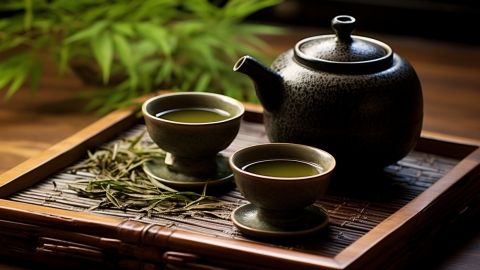What is the best tea to drink for hypertension?
Generally speaking, there is no specific type of tea that is considered best for hypertension. Patients with high blood pressure can benefit from drinking chrysanthemum tea, hawthorn tea, lotus leaf tea, lotus seed tea, and cassia seed tea. The details are as follows:

1. Chrysanthemum Tea
Chrysanthemum tea has the effects of clearing heat and detoxifying, and improving liver function and vision. Patients with hypertension who drink chrysanthemum tea can help regulate blood lipids, prevent atherosclerosis, and thus assist in controlling blood pressure. Chrysanthemum tea has a fresh taste and is suitable for daily consumption.
2. Hawthorn Tea
Hawthorn tea helps promote qi circulation, resolve blood stasis, and lower lipids. Components in hawthorn can dilate the coronary arteries, relax blood vessels, and reduce blood pressure and lipids. Drinking hawthorn tea can not only help lower blood pressure but also aid digestion and improve gastrointestinal function in patients with hypertension.
3. Lotus Leaf Tea
Lotus leaf tea has the effects of dilating blood vessels, clearing heat, relieving summerheat, and lowering blood pressure. The alkaloid components in lotus leaves help reduce blood pressure and improve circulation. Patients with hypertension who drink lotus leaf tea can assist in lowering blood pressure and maintaining overall health.
4. Lotus Seed Tea
Lotus seed tea has a bitter taste but can clear the heart, relieve irritability, stop bleeding, and lower blood pressure. The alkaloid component in lotus seeds helps reduce blood pressure and improve cardiovascular health. Drinking lotus seed tea can help patients with hypertension manage their blood pressure while also regulating mood and alleviating stress.
5. Cassia Seed Tea
Cassia seed tea helps lower blood pressure and lipids, clears the liver and improves vision, and promotes bowel movements. Patients with hypertension who drink cassia seed tea can not only help reduce blood pressure but also improve vision and promote intestinal motility.
In daily life, increasing the intake of dietary fiber, such as whole grains, vegetables, and fruits, can help promote intestinal motility and reduce cholesterol absorption, which is beneficial for controlling blood pressure.








